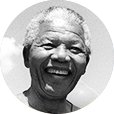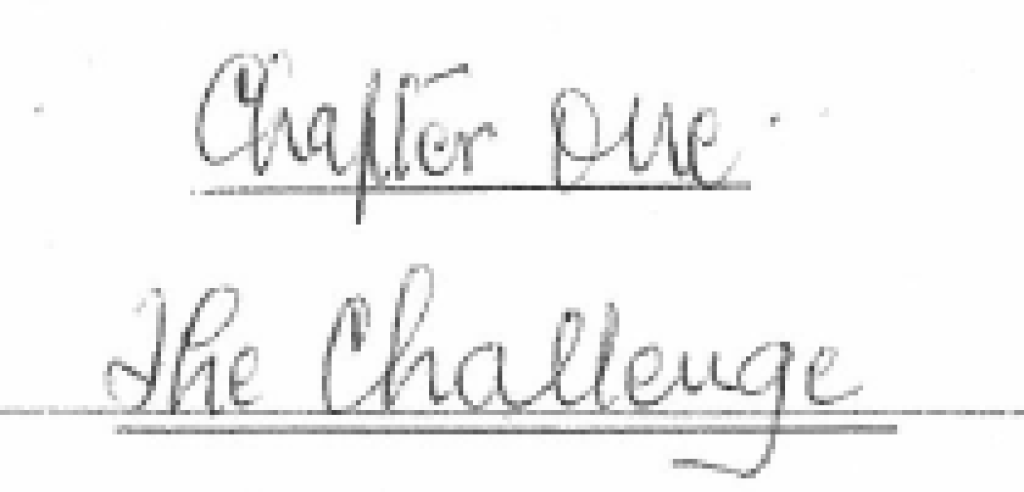Meeting with traditional leaders across the country was among the first things Mandela did after being released.

Soon after I was released from prison I flew down to East London and met Comrade Silumko Sokupha and the regional executive Committee to acquaint myself with the situation in that area. In their briefing they told me that the Head of the House of Rarabe, King Zanesizwe Sandile, would visit me at my hotel that morning. I was shocked because to invite a monarch to visit a mere politician in a hotel was a breach of protocol.
I instructed the committee to phone immediately and inform the King that I would prefer to pay him a courtesy visit at his palace later during the day. At that moment the King walked in. I apologised and pointed out that many of the young people who occupied leadership positions in the African National Congress grew up in the urban areas. They knew precious little about traditional leaders. It was not so much deliberate disrespect of, as lack of information on, the historic role of traditional leaders and the vital contribution they have made towards the liberation struggle.
Heroes like the Khoi leader, Autshumayo, Maqoma and Hintsa from the House of Tshiwo, Siqungati and Gecelo from the Aba-Thembu, Cetwayo and Bambata from Ama-Zulu, Mampuru and Sekhukhune from Aba-Pedi, Makhado and Tshivhase from Ama-Venda, and a host of other legends, were in the forefront of the wars of resistance. We speak of them with awe and admiration. Traditional leaders like Dalindyebo Ngangelizwe of Aba-Thembu and Indlovukazi of the Ama-Swazi, Labotsibeni Gwamile, each paid a large number of cattle to enrol their respective people into the ANC. Kings hailed from all over the length and breadth of the country to join other African leaders in the formation of the ANC in1912. An upper House was later created to accommodate the Traditional Leaders.
Even at the height of the severe repression of the apartheid regime, there were courageous monarchs like Cyprian Bhekuzuluka Solomon and Sabata Dalindyebo and others who refused to betray their people by accepting the Bantustan policy.
When I returned from prison I took along with me Comrade Peter Mokaba, the President of the ANC Youth League, General Bantu Holomisa, then the strongman of the Transkei Bantustan, and Ngangomhlaba Matanzima, a former Minister of Agriculture in the same Bantustan. We visited African Kings and traditional leaders under them in the Eastern Cape.
To all of them my message was the same: I explained that we fully appreciated the fact that they were forced by the apartheid regime to accept the policy of separate development. Had they not done so they would have been removed from their positions by that oppressive regime. We the ANC were not there to protect them at that time.
I went further and stressed that the youth were justified in condemning them as traitors, as traditional leaders, with a few exceptions mentioned above, were vicious in persecuting members of the liberation movement. Now the organisation had been unbanned, political prisoners had been released, and exiles would soon be back in the country. The ANC was regaining its strength and legitimacy, and would give protection to traditional leaders. I then urged them to rally behind the organisation and to join the fight for liberation.
Everywhere we went we were warmly welcomed. Vulindlela Tutor Ndamase was then King of Western Pondoland with Headquarters at Nyandeni. Holomisa, who was present at that meeting had become the military ruler of the Transkei, where Pondoland was situated. He staged a successful but bloodless coup against Prime Minister Stella Sigcau, Princess of Eastern Pondoland. In welcoming us Vulindlela boasted that he was not an ordinary traditional leader, but a well-known King. Nobody, he claimed, would ever dare to coup him. It was as if he was challenging the General to try to unseat him. But the General appeared not to be offended by the royal boast.
We also visited King Xolilizwe Sigcau of the House of Tshiwo. In his welcome speech he strongly attacked the Toyi-Toyi, which had become a popular form of protest. He said there was nothing he hated more than that toyi-toyi. He had investigated to find out where this type of demonstration came from, and nobody could help him. He announced that he had banned that form of protest in his Kingdom.
Peter Mokaba then explained its origin. It was a war cry against the apartheid policy. It was not at all aimed against traditional leaders. He regretted the fact that the King thought that it was directed at important community leaders. Mokaba then boldly and gracefully toyi-toyed, grating menacingly all the way. The Master of Ceremonies was Mandlenkosi Dumalisile, a senior traditional leader in that House, and Minister of Agriculture in the Transkei Bantustan. When Peter Mokaba concluded his remarks, Dumalisile thrilled the meeting when he, in turn, joined and toyi-toyed. The King, obviously fascinated by Mokaba's eloquence and grace, accepted the explanation.
Holomisa and Ngangomhlaba Matanzima accompanied me only in the Transkei where my meetings went on without trouble. Despite the diplomatic and courteous language used, I did not fare well in the Bantustans of Bophuthatswana, Lebowa Kgomo in the Transvaal Province, as the Northern Province was then known. The position was equally difficult in KwaZulu/Natal.
Lucas Mangope was President of Bophuthatswana, and a different customer. I visited his Bantustan in the company of Comrade Joe Modise, who later became our Minister of Defence, Ruth Matseoane who became our Ambassador to Switzerland, and Popo Molefe, the present Premier of North West. Before April1994 no liberation movement could campaign in Mangope's Bantustan. He first agreed when I requested him to remove all barriers and allow political organisations to campaign freely in his area. Later during the discussion he suddenly pounced an unexpected question on us and asked ‘when you address a meeting in my area are you going to say Bophuthatswana is a Bantustan?’.
I assured him that everybody knows that his is a Bantustan and that would be the theme of our speeches. He then said that in that case we would be in trouble. His people would feel insulted and he could not guarantee our safety. We told him that we were confident that we would be able not only to protect ourselves, we would win the majority of the people of that area. But we could not convince him. It was a draw. On several occasions thereafter I invited him to Johannesburg and tried to persuade him without success. He is one of the most difficult and unpredictable politicians I have met.
After overcoming an intricate web of machinations from Mangope and some South African generals, [we succeeded with the help of] Pik Botha, Mac Maharaj, Fanie van der Merwe and Roelf Meyer we succeeded in removing Mangope as President and dissolved his government. The Transitional Executive Council replaced him with South African Ambassador in that Bantustan, Chart [Tjaart] van der Walt and Job Mokgoro as a temporary government
I also experienced serious problems in the Transvaal Province in the Lebowa Bantustan under Nelson Ramodike, who was the Chief Minister of that Bantustan. There were two powerful claimants to the Ba-Pedi throne, namely Rhyne Thulare and Kenneth Kgagudi Sekhukhune, both of whom were descendants of King Sekwati I. Rhyne was the son and undisputed successor to Queen Mankopodi Thulare, who became Regent during the minority of her son. She was later deposed by the Royal Council of the tribe as they disapproved of certain aspects of her reign. The Royal Council appointed Rhyne to succeed the mother, but Rhyne declined. The Royal Council then resorted to K K Sekhukhune and appointed him Regent. He was ordered to marry what was termed a ‘candle wife’ who would produce a King. A son was later born of the marriage and named Sekwati Ill.
Later Rhyne changed his mind and claimed his rightful position. According to law and custom he was the undisputed heir to the throne. But K K Sekhukhune refused to step down on the grounds that Rhyne had renounced his claim to the Kingship, an argument which the High Court endorsed. I called several meetings of the tribe without success. I eventually made it clear that this was a dispute which should be settled by the Ba-Pedi themselves and not by the President of the ANC or of the Country. But the matter remains unresolved to the present day.
I had a similar problem with the Ama-Venda traditional leaders. I visited King Tshivhase expecting all the traditional leaders in that area to attend. Contrary to my expectations, King Mphephu refused to attend on the ground that he was senior to Tshivhase, and he insisted that, although he was keen to listen to me, I should visit him at his own residence. In spite of the fact that I was again warmly welcomed it was clear that I had deeply hurt him in thinking that Tshivhase was senior to him. I also discovered that he was working closely with President.
My problems were in no way less with Ama-Zulu traditional leaders. (See next chapter) . ...
In due course and in spite of the problems I encountered, the overwhelming majority of traditional leaders throughout the country responded positively and rallied behind the ANC.
